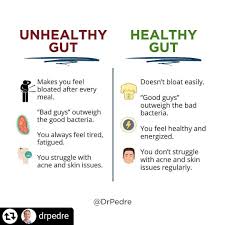
Keeping a healthy lifestyle while studying can be difficult. Health issues can arise from working late, tight budgets, and other commitments. These are some health tips that students can use to prevent these negative consequences. Keep in mind that the above tips are not meant to replace a healthy diet and exercise program, but should serve as a guide to keeping a healthy lifestyle while studying. Read on to learn about the importance of these tips.
Exercise reduces risk of illness
Exercise can be beneficial for your health in many ways. Exercise is a great way to increase neuroprotective hormones and protect your brain from illness. Exercise can also improve the function of your heart, and immune system. All of these benefits can help keep you healthy. Do not miss an opportunity to exercise. Here are some ways that exercise can help improve your health.
Healthy diet improves memory
The following food group can enhance your memory: fish, fatty fish, seafood, nuts, and whole grains. All of them contain folic acid which is essential for brain health. Eggs are a good source of vitamin B12 (lecithin) and choline (a vital building block of neuron cells). Fish is rich in omega-3 fatty acid, which is essential for brain cells and oxygen transport. Eating seafood may even prevent the onset of Alzheimer's disease.

Meditation reduces stress
One study shows that students who meditate regularly experience less stress. Participants in the study were music majors and were asked to take part in guided meditations of 10 minutes each day. The researchers asked students at Temple College and Texas A&M University-Central Texas to come in for the mediation sessions daily. The study found that meditation had a significant impact on students' stress levels during November, a busy month. Shamatha-meditating students showed a notable reduction in stress.
Drinking alcohol may cause health problems
It can take months or even years for college students to see the effects of alcohol consumption on their health. But, more than 150,000 college-aged students suffer from alcohol-related health issues every year according to studies. These could include minor cuts and broken bones as well as concussions. You are also more likely to become addicted to alcohol if you drink alcohol for longer periods of time. It is possible to become addicted to alcohol in college.
Avoiding head lice
It is best to not allow your child to share personal items like caps, hats, or hair accessories. Students should also avoid personal items, such as headphones, pillows, and car seats that may come in contact with their heads. The lice that can live on items such as pillows, car seats, and headphones can be transmitted to children's hair by their parents. They should check their child's head frequently for nits and live lice.

FAQ
How can one determine if they have a mental health condition?
When symptoms interfere with daily life, a person can be diagnosed with a psychological illness. There are many symptoms of mental illness. The most common symptoms are feeling depressed, sad, anxious, guilty and hopeless, lonely or depressed, as well as guilt, shame, guilt, guilty, guilty, guilty, suicidal and worthless.
A person could also be diagnosed if they meet any of the following criteria:
-
Disturbed feelings or thoughts
-
Disturbed behavior
-
Disruption in functioning
-
A decrease in ability to relate with others
What affects my mental health on my relationships and friendships?
Your mental well-being has a direct impact on all aspects of your life. It affects your ability function properly at school, work, and home. A mental illness can make it difficult for you to have meaningful relationships.
A mental health condition can make it easy to isolate oneself from others. You may even avoid social situations because you feel like no one understands you.
You must remember that people want you to be around them. You just have to be approachable.
Talking to others about your feelings can help you connect with them. Ask for their guidance and tell them how you feel.
Why is it important that students have a healthy mind?
Students must be healthy mentally to be able both to concentrate on school and to do well academically. If you don't feel good, you won't be able to perform well in school. Depression can lead to students missing class and poor grades. This may result in dropping out of highschool and eventually college.
Parents and teachers should be consulted if you are suffering from depression. They will help you get the treatment you need.
It is important to remember that not all people with depression need medication. Talk therapy is an effective treatment for many people. So, if you're thinking about getting help, then you should consider seeing a counselor.
Statistics
- In any given year, an estimated 18.1% (43.6 million) of U.S. adults ages 18 years or older suffered from any mental illness, and 4.2% (9.8 million) (healthypeople.gov)
- Appropriate nutrition and exercise are likely among the most efficacious and cost-effective positive mental health interventions. (ncbi.nlm.nih.gov)
- Similarly, for positive mental health, there is likely to be substantial agreement about some typical components (e.g., resilience to stress) 6, and controversy about more atypical components (e.g., career consolidation). (ncbi.nlm.nih.gov)
- Similarly, while there is some agreement about the boundaries of typical mental disorders 2, there is likely less agreement about those for positive mental health. (ncbi.nlm.nih.gov)
- It does have some influence, but not nearly as much as we might think, so focusing less on attaining wealth will likely make you happier (Aknin, Norton, & Dunn, 2009); (positivepsychology.com)
External Links
How To
How to care for children with autism
Autism spectrum disorder (ASD) is a neurodevelopmental condition characterized by impairments in social communication and repetitive behaviors. ASD affects one in 50 people around the world. However, there is no cure.
The 18-month-old age of infancy is when the symptoms first appear. The most common signs include difficulty understanding others' emotions, lack of eye contact, problems with language development, and difficulties in learning new skills. These symptoms can lead sometimes to more serious behavioral issues like aggression, anxiety, depression and sleep disturbances.
Researchers believe that genetics are a factor in this disorder. However, there is no current cause. ASD may be caused by factors like infection, stress, obesity, drugs, vaccines or alcohol. Evidence also suggests that certain viruses, such as rubella or measles, can increase the likelihood of developing ASD later on in life.
Early diagnosis and intervention are key to improving outcomes. Many families struggle with their child’s behavior after they turn 18. Different treatment options are available depending on the severity and type of the problem. Research shows that therapy focused on improving social interaction and decreasing problem behavior can make a significant difference.